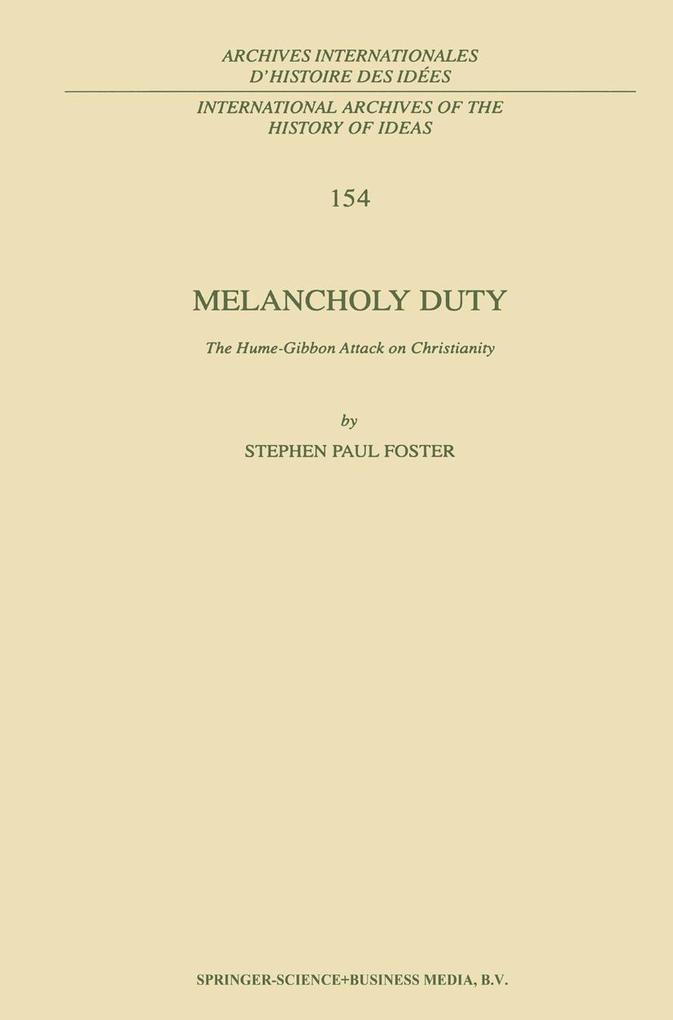
Sofort lieferbar (Download)
This book studies the complementary features of the thought of David Hume and Edward Gibbon in the complete range of its confrontation with eighteenth-century Christianity. The ten chapters explore the iconoclasm of these two philosophical historians - Hume as the premier philosopher, Gibbon as the consummate historian - as they labored to `naturalize' the study of Christianity, particularly with attention to its social and political dimensions. No other work deals as comprehensively or thoroughly with the attempt of philosophical history's challenge to Christianity. Belief in miracles and the afterlife, the dimensions of fanaticism and superstition, and the nature of religious persecution were the themes that occupied Hume and Gibbon in the making of their critique of Christianity. This book makes a valuable contribution to scholarship in a number of fields including the history of ideas, religious studies, and philosophy. It will be of interest to philosophers of religion, historians of ideas, eighteenth-century intellectual historians, scholars of the Scottish Enlightenment, and Hume and Gibbon scholars.
Inhaltsverzeichnis
1 Introduction: Hume, Gibbon, and the Attack on Christianity. - 2 Philosophic History and the Critique of Orthodoxy. - 3 Of Miracles at Work in the Decline and Fall. - 4 The Demise of Immortality. - 5 Persecution, Platonism, and the Virulence of Metaphysics. - 6 Monkish Virtues and Conventional Morality: The Moral Critique of Religion. - 7 Politics and Fanaticism. - 8 The Priest and the Prince: Co-opting the Church. - 9 Naturalizing Religion: Superstition, Enthusiasm, and Religious Conduct. - 10 Attacking Christianity: By Way of Islam. - Conclusion. - Bibliography of Sources Cited.
Produktdetails
Erscheinungsdatum
09. März 2013
Sprache
englisch
Auflage
1997
Seitenanzahl
362
Dateigröße
38,69 MB
Reihe
International Archives of the History of Ideas Archives internationales d'histoire des idées
Autor/Autorin
S. P. Foster
Verlag/Hersteller
Kopierschutz
mit Wasserzeichen versehen
Produktart
EBOOK
Dateiformat
PDF
ISBN
9789401722353
Entdecken Sie mehr
Bewertungen
0 Bewertungen
Es wurden noch keine Bewertungen abgegeben. Schreiben Sie die erste Bewertung zu "Melancholy Duty" und helfen Sie damit anderen bei der Kaufentscheidung.









